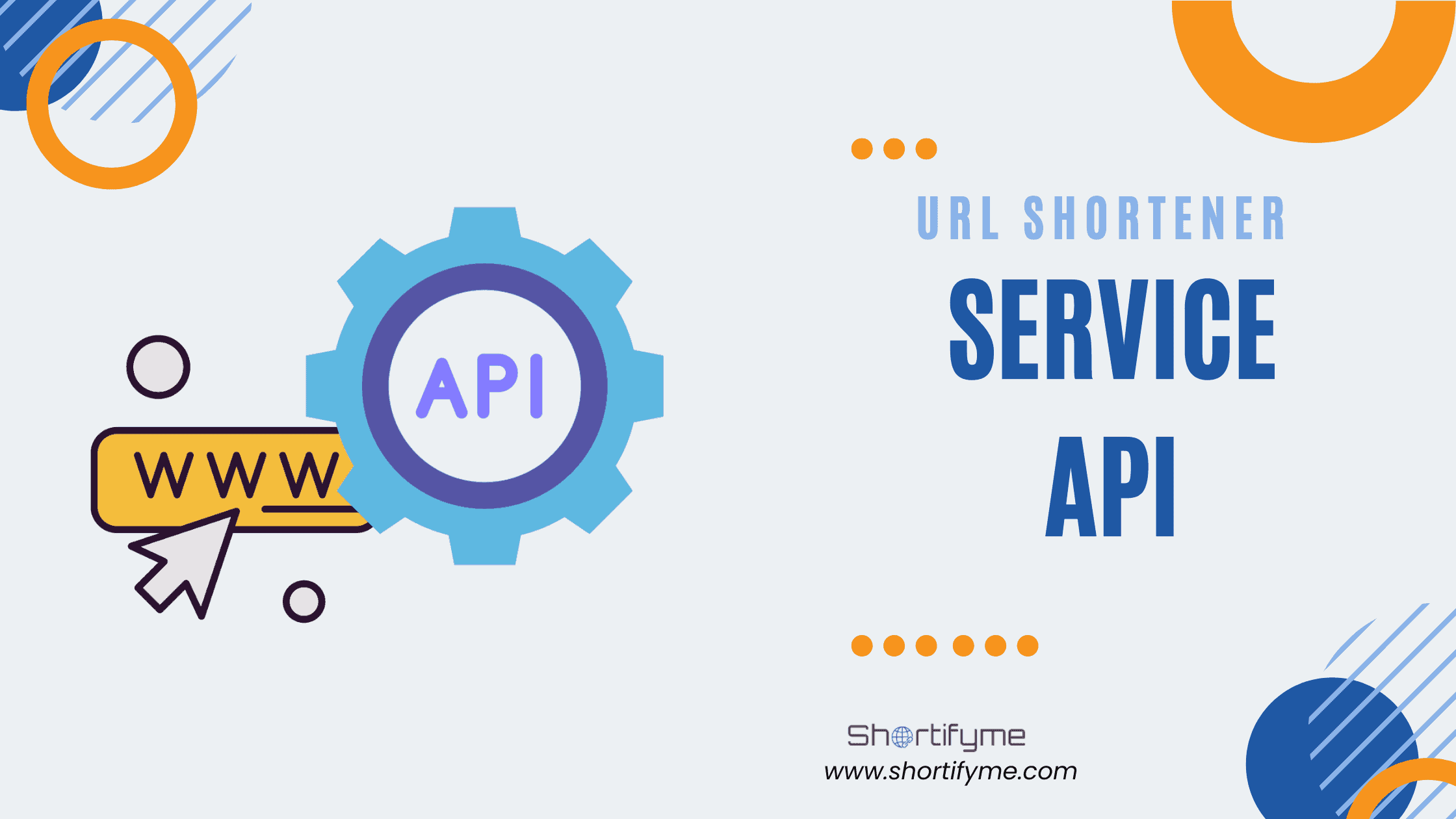As technology advances, so do the tools at our disposal. Enter the URL Shortener Service APIs, the backbone of seamless link management. URL shortener service APIs offer a way to transform lengthy, unwieldy links into tidy, memorable packages.
These Application Programming Interfaces (APIs) are more than just digital space-savers; they’re versatile tools that empower businesses to track link performance, enhance brand recognition, and drive smarter marketing decisions.
Let’s dive into the world of URL shortener service APIs and explore how they can revolutionize your digital strategy.
What is a URL Shortener Service API?
A URL Shortener Service API is a set of protocols and tools that enable developers to integrate URL-shortening functionalities directly into their applications or websites.
This API integration empowers users to automate creating, managing, and tracking short URLs, offering a seamless experience for both developers and end-users.
Why APIs Matter: Unleashing the Full Potential of URL Shortening
Think of APIs (Application Programming Interfaces) as digital bridges that connect different software applications, allowing them to communicate and exchange data seamlessly.
URL shortener service APIs offer this same connectivity for link management, empowering you to integrate shortening functionality directly into your apps, websites, and marketing campaigns.
Evolution of URL Shortener Service APIs
URL shortening services have been around for over two decades, but their evolution has been closely tied to the API revolution.
Early services like TinyURL offered web-based interfaces for shortening links, but APIs opened the door to a new level of flexibility and integration.
Today, numerous URL shortener service APIs are available, each with unique features and capabilities. Some popular options include:
- Bitly API: A widely used industry standard, offering robust features for link shortening, management, and analytics.
- ShortifyMe API: Known for its simplicity and ease of use, making it a popular choice for smaller projects and personal use.
- TinyURL API: A veteran in the field, providing basic link-shortening functionality for free.
Key Features of URL Shortener APIs
Here are some key features of using URL shortener service APIs:
Shortening Functionality
URL shortener APIs provide a range of features to enhance the shortening process. Developers can choose between different methods for submitting URLs, such as POST and GET requests.
Moreover, customization options like creating custom aliases and using branded domains add a personalized touch to the shortened URLs.
Bulk URL shortening capabilities further streamline the process for large-scale operations.
Link Management
Efficient link management is a cornerstone of URL shortener APIs. Users can easily view and edit existing shortened URLs, add tags and categories for organization, and set expiry dates or click limits for enhanced control.
These features contribute to a well-organized and easily manageable repository of shortened links.
Analytics and Tracking
In the digital realm, data is gold. URL shortener service APIs offer robust analytics and tracking features, providing insights into the performance of shortened URLs.
Users can access click statistics, including clicks, unique visitors, and location data.
Referral source tracking helps understand how links are being shared, and A/B testing allows for the optimization of different short URLs and landing pages.
Security and Reliability
Security is a top priority in the digital age. URL shortener APIs ensure secure data transmission through SSL encryption.
To prevent abuse, API rate limiting is implemented, and high uptime and redundancy are maintained for consistent service, instilling confidence in users regarding the reliability of the API.
Popular URL Shortener Service APIs: Taking a Deep Dive
Now that we’ve laid the groundwork, let’s explore some popular URL shortener service APIs in more detail, showcasing their unique features and how they can benefit your specific needs.
1. Bitly API
Overview:
A household name in the URL-shortening world, Bitly boasts a robust API offering. With a focus on scalability and enterprise-level features, it’s ideal for large-scale marketing campaigns and data-driven businesses.
Features:
- Advanced Analytics:Gain deep insights into link performance with detailed click data, campaign tracking, and custom reports.
- Team Collaboration:Manage shared workspaces and user roles for seamless team-based URL management.
- Custom Branded Domains:Create branded short URLs that enhance brand recognition and build trust with your audience.
- Global Reach:Leverage Bitly’s expansive network of data centers to ensure optimal performance worldwide.
Integration Steps:
Bitly offers comprehensive API documentation and code examples to facilitate integration with various platforms and programming languages. Their developer portal provides tutorials and guides to walk you through the process step-by-step.
Use Cases and Examples:
- Track the effectiveness of social media campaigns with branded short URLs and detailed click analytics.
- Optimize email marketing performance by analyzing click-through rates for different links within your messages.
- Shorten product links for mobile apps and track user engagement within the app experience.
2. ShortifyMe API
Overview:
For those seeking a user-friendly and approachable API solution, ShortifyMe ticks all the boxes. Its simple interface and intuitive features make it a perfect choice for smaller projects and personal use.
Features:
- Quick and Easy Shortening:Get started without a developer account and shorten links effortlessly through their API or web interface.
- Custom Domain URL Shortener:Create memorable short links that align with your brand identity using your own custom domain.
- Link Analysis and Tracking:Track essential link metrics, including total clicks, unique visitors, geographic locations, and referral sources.
- Link Management: View, edit, and organize your shortened links efficiently within a user-friendly interface.
- API Integration:Effortlessly integrate ShortifyMe’s link-shortening functionality into your websites, applications, and other digital platforms.
Integration Steps:
ShortifyMe’s API documentation is clear and concise, making it easy to integrate with your website or application. They also offer pre-built libraries for popular programming languages, further simplifying the process.
Use Cases and Examples:
- Shorten personal links for sharing on social media or online forums.
- Create custom short URLs for your blog posts or portfolio projects.
- Use temporary links for file sharing or internal communication within small teams.
3. TinyURL API:
Overview:
The OG of URL shortening, TinyURL remains a popular choice for its no-frills approach and free basic plan.
While its feature set is less robust compared to other options, it offers a simple and reliable solution for basic link-shortening needs.
Features:
- Free Basic Plan:Shorten and track links for free, although limitations apply.
- Custom Aliases:Create personalized short URLs for added recognition (paid plans only).
- Bulk Shortening:Shorten multiple URLs at once, even with the free plan.
- API Integration:Seamlessly integrate link-shortening functionality into your applications.
Integration Steps:
TinyURL’s API documentation is readily available and straightforward, making it easy to get started with basic integrations.
However, compared to other options, its API functionality might be less intuitive for complex use cases.
Use Cases and Examples:
- Shorten simple links for email newsletters or online documents.
- Share temporary links for file downloads or quick access to specific online resources.
Use as a basic solution for personal link-shortening needs when advanced features are not required.
Use Cases and Benefits of URL Shortener Service APIs
Now that we’ve explored the features and capabilities of some popular URL shortener service APIs, let’s talk about the practical applications and tangible benefits they offer across various sectors.
1. Marketing and Social Media
- Boost Engagement and Click-through Rates: Replace long, unwieldy URLs with branded short links that are visually appealing and easier to share on social media platforms.
- Track Campaign Performance: Gain insights into click data and referral sources to understand how users are interacting with your marketing campaigns and optimize your strategies for better results.
- Personalize Landing Pages: Create custom landing pages linked to your shortened URLs to provide a seamless user experience that aligns with your brand and campaign messaging.
2. Mobile Apps
- Deep Linking for Enhanced User Experience: Leverage URL shortener APIs to create deep links that navigate users to specific sections or features within your mobile app, eliminating friction and improving app engagement.
- Track App Installations and User Journeys: Utilize link analytics to understand how users are discovering your app and track their in-app journey for data-driven app improvement.
- Share Content and Resources: Shorten links to relevant articles, tutorials, or other resources within your app, ensuring users can easily access additional information.
3. Email Marketing
- Improve Click-through Rates and Open Rates: Replace long, unsightly URLs with branded short links that entice recipients to click and engage with your email content.
- Track Engagement and Identify Engaged Recipients: Analyze click data and user behavior to understand which recipients most are interested in your email campaigns and tailor future messages accordingly.
- Personalize Email Content with Dynamic URLs: Utilize dynamic short URLs to personalize email content for different recipient segments, enhancing relevance and engagement.
4. Customer Support
- Share Support Documentation and Resources: Shorten links to frequently asked questions, user guides, and other support resources, making it easier for customers to find the information they need.
- Track Click Data for Customer Service Improvement: Analyze clicks on support resources to identify common issues and pain points, allowing you to refine your customer service offerings.
- Create Temporary Links for Individualized Support: Generate short links with expiration dates to share specific information or resources with individual customers securely.
5. Data-Driven Decisions and Insights
- Track Click Data for Website Optimization: Analyze click data from shortened links to understand how users are interacting with your website, identify content gaps, and optimize website navigation and content performance.
- Gain Insights into User Behavior and Preferences: Leverage click data and referral sources to understand user demographics, interests, and online behavior, informing your marketing and content strategy.
- A/B Test Different Landing Pages and Short Links: Utilize URL shortener APIs to conduct A/B testing on different landing pages and short URLs, optimizing your digital assets for maximum conversion and user engagement.
This list is just a glimpse into the vast potential of URL shortener service APIs. As you can see, these APIs extend far beyond simply shortening links; they offer a powerful toolkit for enhancing marketing efforts, streamlining user experience, and unlocking data-driven insights to optimize your digital strategy across diverse sectors.
Choosing the Right URL Shortener Service API
When selecting a URL shortener API, it’s crucial to consider various factors to ensure it aligns with your specific needs:
- Features: Evaluate the features offered by each API, considering aspects like link management, analytics, and customization options.
- Pricing: Understand the pricing structure and ensure it fits your budget, especially for long-term use or large-scale operations.
- Supported Platforms: Check if the API is compatible with the platforms you intend to use it on, ensuring seamless integration.
- Data Privacy: Prioritize APIs that adhere to stringent data privacy standards to protect sensitive information.
- Ease of Use: Opt for an API with a user-friendly interface and straightforward integration steps.
Tips for Developers
Best Practices for API Integration
- Familiarize yourself with the API documentation to understand its functionalities thoroughly.
- Implement proper error handling to manage unforeseen issues during API calls.
- Regularly check for updates or new features in the API, ensuring your integration remains optimized.
Choosing the Right URL Shortener Service API
- Consider your specific use case and select an API that aligns with your requirements.
- Test the API in a controlled environment before deploying it in a live application.
- Seek community support or forums for insights from developers who have already integrated the chosen API.
Optimization Strategies
- Regularly analyze the performance of your shortened URLs and adjust strategies based on analytics data.
- Explore advanced features offered by the API to enhance the overall efficiency of your URL shortening process.
Conclusion
In this digital age, URL shortener service APIs are more than just technological marvels; they’re catalysts for growth, optimization, and a deeper understanding of your online audience.
Whether you’re a seasoned marketer, a web developer extraordinaire, or simply someone eager to streamline your digital life, these APIs offer a treasure trove of possibilities.
They offer a streamlined approach to link management, analytics, and customization, contributing to a more engaging and efficient online presence.
So, dive headfirst into the exciting world of URL shortener service APIs. Explore their features, experiment with their functionalities, and unleash their power to transform your online endeavors. Remember, the only limit is your imagination!


